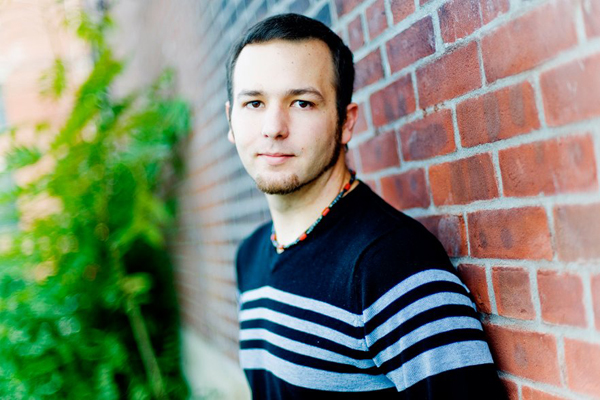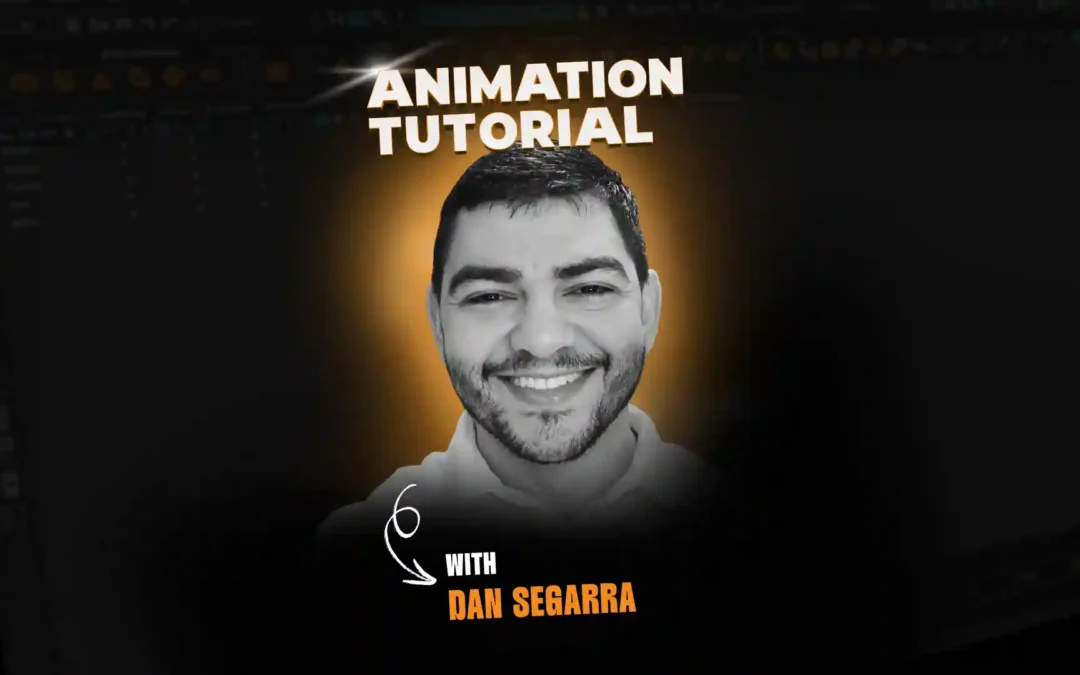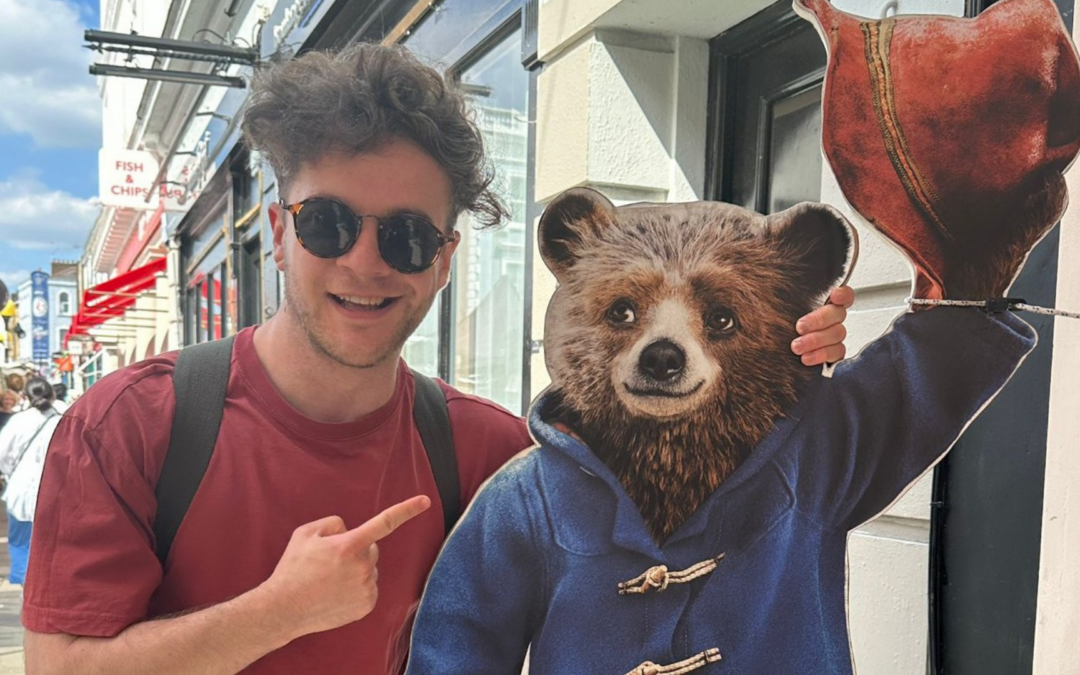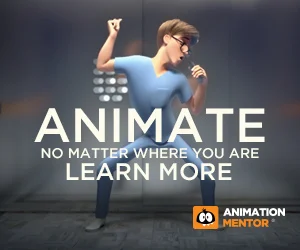Studios are looking for artists with real-world production skills. Those skills can be difficult to come by without actually working in a studio. In January 2013, Animation Mentor took online education to the next level with the launch of the studio school model. At Animation Mentor you, students, and graduates can learn together in an exclusive, cloud-based pipeline built by engineers from top studios.
In the studio school model, you learn how optimize your workflow with a pipeline, how to produce shots with artists from other departments, and how to be successful in a top film studio. Instead of telling you how the studio school model can benefit your work, we thought we’d show you.
Meet Nicholas and Joshua. Nicholas is an animator who thrived in both the Classic Animation program and the Creature Animation classes. Joshua is an artist who excelled in our Maya Workshop and VFX Fundamentals program. The two of them produced an incredible animation scene together. Let’s get to the good stuff and have Nicholas and Joshua share with you in their own words.
-Lindsay (Animation Mentor crew member)
___

MEET NICHOLAS: Animator
I am a graduate of Animation Mentor’s original program (Fall 2011) and prior to taking the Creature class, I was an animator at Rhythm and Hues in LA for about 2 years. After R&H went bankrupt, I did some freelance work for Duncan Studio in Pasadena while taking the Creature Animation course and then landed a gig at Method Studios in Los Angeles where I am currently at now.
THE POWER OF MENTOR FEEDBACK
Getting feedback is a must have thing in animation, since it’s very easy to become blind to your own work. I personally think having a mentor give feedback week to week is invaluable. Not only will you learn more since the mentors at Animation Mentor are working professionals, but you’ll start to look at things from a different perspective and grow faster since they have been in your shoes and usually have some helpful hints to make your shot work better.
After having worked in the industry for a few years, I can definitely say Animation Mentor’s mentors treat you very similarly to an animation lead or supervisor would in a studio setting. While the program might not be as fast paced as a studio setting can be sometimes, it will definitely prepare you for the real world because you are held to a certain standard and each week given valuable feedback to improve your shots just like you would in dailies or rounds.
PASSING ANIMATION TO VFX ARTISTS
Depending on what type of shot and what is being done things like “Are any parts penetrating itself or other characters?” If so, it may screw up lighting or technical animation. “Did I make the best use of the lighting in my shot?” Maybe by animating a creature coming into the light it affects the way he moves, even though the light is from a real world plate.” I think the main things I’ve learned from working in a VFX pipeline is your job isn’t always complete once you get a final animation approval on your shot. It still has a bunch of phases to go through and sometimes you might have to make changes for other people in the pipe.
HOW TO ANIMATE REALISTIC CREATURES
My favorite thing about animating creatures is that a lot of times, the creatures you get to animate don’t really exist! Being able to breathe life into a dragon or monster can be really fun and challenging, but when you finally finish and they are there, wrecking havoc or flying around, nothing beats making the impossible a reality (well, almost.)
TIPS FOR ANIMATORS
I think the most helpful tip I can think of is to really observe reference and study the way animals move and think. Just like people, animals are very complex creatures and if you go in thinking you know how they move, you will be doing yourself a disservice. Read, watch and observe all the animals you can think of! Cats move and think completely differently than dogs. Birds, bats and insects all fly but they all do so in a completely different way. Really dig in and you might be surprised what you find out!

MEET JOSHUA: VFX Artist
Prior to taking the VFX fundamentals classes, I had no formal training in anything VFX, or arts related. I had a Photography/Music/Acting background from just taking them up as hobbies since I was a teen. Those skills have help me transition into VFX from a creative standpoint.
I did also take the Maya Workshop at Animation Mentor, which was brilliant. Learning the tools ahead of time really helped to set me up for success. I found there to be many learning curves throughout my time here, and getting over the software and tools learning curve is a big jump. It was also approached at a decent tempo.
There’s two sides to a VFX artists. The technical side and the artistic. There are many traits you may have already that can be applied to your education at Animation Mentor. These course thoroughly walk you throw it all.
MENTORS SHARE REAL EXPERIENCES
Walking into the Q&A on day one I didn’t know what to expect. I was thoroughly impressed by the caliber of all of my mentors across the board. Both as professionals, and as teachers. They shared real-life experiences with us, and to hear examples and stories about the films you love to watch and are excited about is wonderful. Their feedback was concise, critical and always supportive. Even during the most frustrating times, I always received from them, the attention to detail and guidance I needed to get me over each hurdle and continue to progress.
If I were to briefly describe what the student/mentor relationship was, I think the label of “mentor” is a perfect fit. They all are here because they want to be. They are literally working in the industry as their career, and they take the time to give us that mentorship. They approached my work as if it was real-world production material. They critiqued it as such, and never once did I feel like I was getting B rated instruction.
At the same time, they never forgot that we are all students and learning. By the time I finished the short Maya Workshop, I had a good idea of what to expect from my classes and mentors. My first mentor, Kevin Jackson, set the bar pretty high. Then Jeffrey Kember, Aaron Estrada and Sebastian Feldman never dropped that bar.
I would love this opportunity to give you some critical feedback, and although nothing’s ever perfect; after 32 years of life and schooling (Secondary/College), along with 14 years in the work force, I feel like the time I have invested here was totally legit, and satisfying.
COLLABORATING WITH NICHOLAS
Nicholas St. Clair actually contacted me in Term 2 while I was mid-way through lighting his animation. That was great because both of us got to learn what is was like to collaborate at different stages on the same project.
When working with animation files, you quickly learn what you do and do not have control of. The first thing I picked up on was the experience of working in a pipeline. What we were given was what we had to work with, and that translated to me then, to remember that whatever I create on my end would then have to be looked after by someone else.
I also learned the basics of how projects moved along the pipe. In term 1 we were taught how to setup cameras. In Term two, we were given shots and already set-up scenes.
Since we first got a hold of animation files when we started lighting, the correlation between the character’s expression became quickly linked with the lighting. Working in the collaboration project in Term 2 taught me how much we can add to the feeling of a shot to compliment the animation. Something I didn’t give credit to prior.
In term 3 we took a more advanced shot and composited to a live-action plate. Although I spent countless hours working VFX to do my best to bring the shot to life, I picked up a lot of things on the animation side. I have seen that shot so many times, that I feel I know pretty well the choices made during the animation stage. The way Animation Mentor has set up these collaborations and the pipeline really opens the scope of the experience I have been able to have.
A LOVE OF VISUAL EFFECTS
A wise Doctor once said, that “Nothing is impossible, just highly unlikely”. VFX is one of those things that allow us to watch films and shows and stories of the impossible and believe in them. The problem with growing up is that most people gain wisdom, but choose to sacrifice some of the imagination they had as a kid. Until, you see those same people at the movie theatre to watch the next Superhero save the world. VFX has been a cornerstone in film since it’s inception. The Thief of Bagdad (1940) used green screen, and VFX were toyed with prior to it. It’s the backbone, the man behind the Wizard’s curtain, and that’s just awesome.
As far as surprises, no matter how much I thought I understood the process, I am still getting up to speed with the amount of time and energy that goes into every shot. I can’t wrap my head around the size of the task of producing some of the movies I see. I have to watch the end credits to every movie to remind myself of it when I see the hundreds of names for VFX come up.
A FEW WORDS OF WISDOM
The best tip I could give is this: This is an investment in yourself. Be invested, and give it your all. An old adage is “You get out of it, what you put into it”. That’s spot on. Give 110% all the time and do your best. Don’t worry about what level you’re at or how far you’ll progress. If you give your due diligence, the mentors will help you get there. Talent is just a measure effort, times of speed of progression multiplied by the time you put in. Some people need more time, but as long as your effort is peaking, you will be on a path to success.
The second tip is simply to be humble. Being someone that has learned most of my skills/trades on my own, it’s very easy to get wrapped up in what I think I know. Be attentive, take in everything you can, and trust the mentors, and the program. I can’t say I ever worked on a Star Wars film. There are mentors that can. They are the go to.
The last tip: Patience. You’re dealing with software, computers, rendering, and most importantly, being creative. It is a long process. Any masterpiece is.
—
To learn more about how the studio school works, sign up for a free Online Campus Tour and we’ll show you around our online campus.



